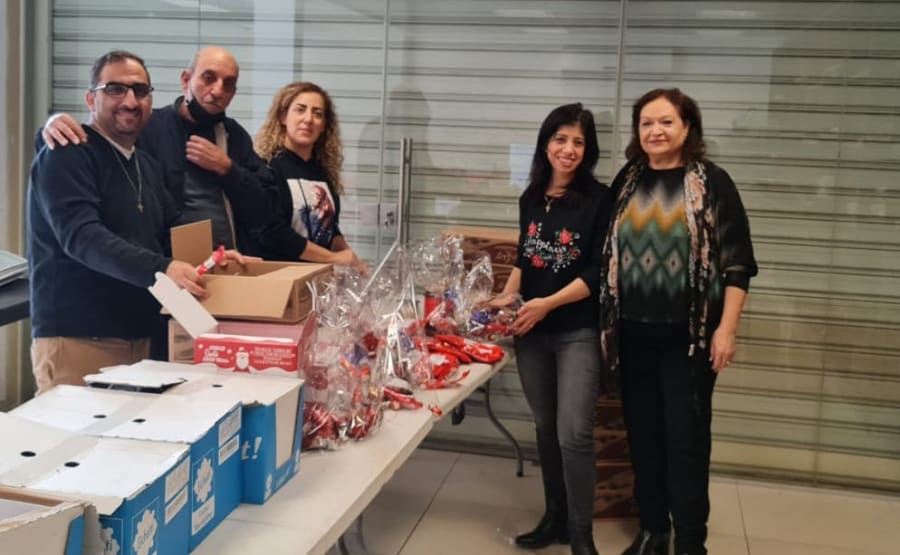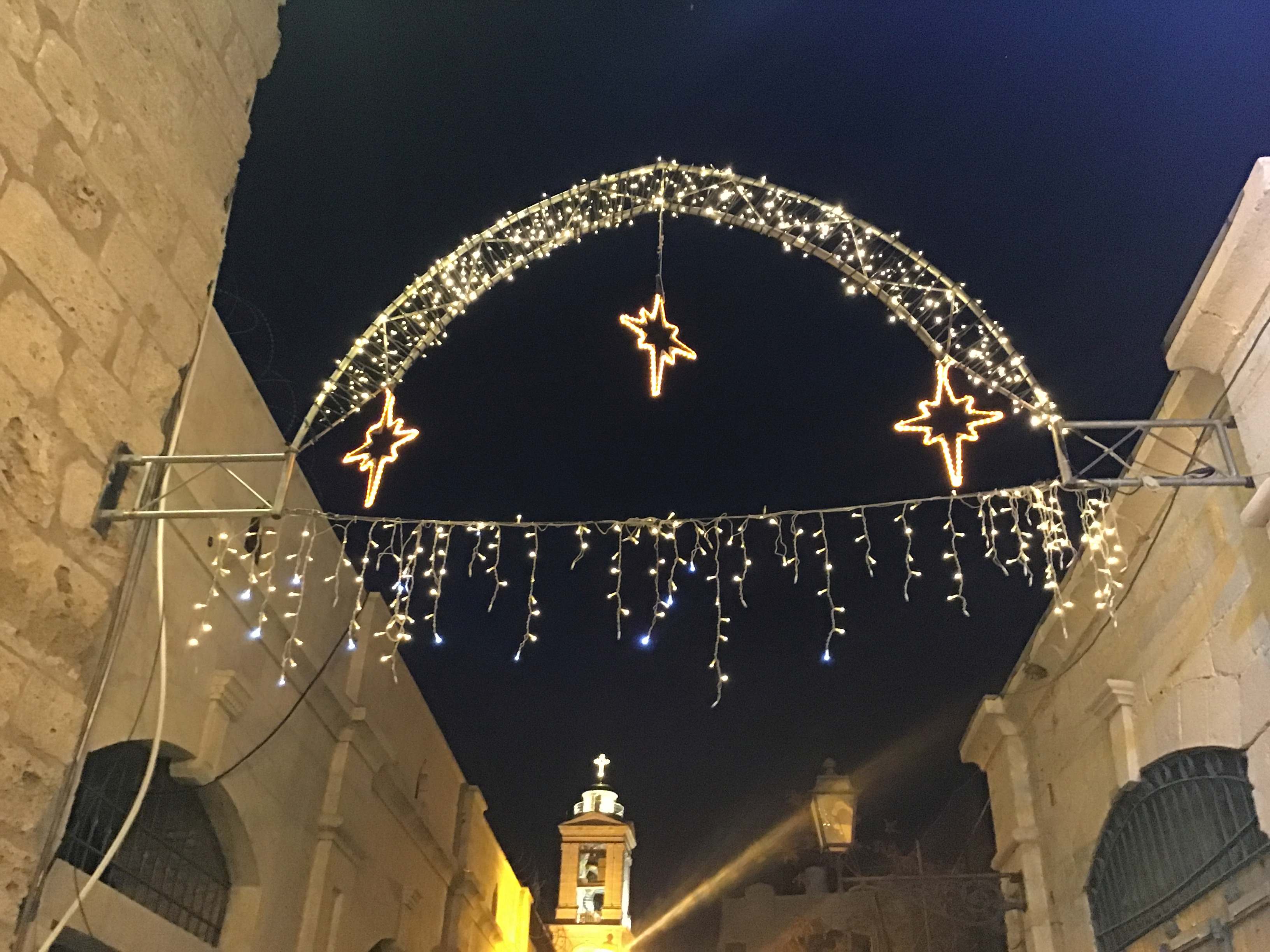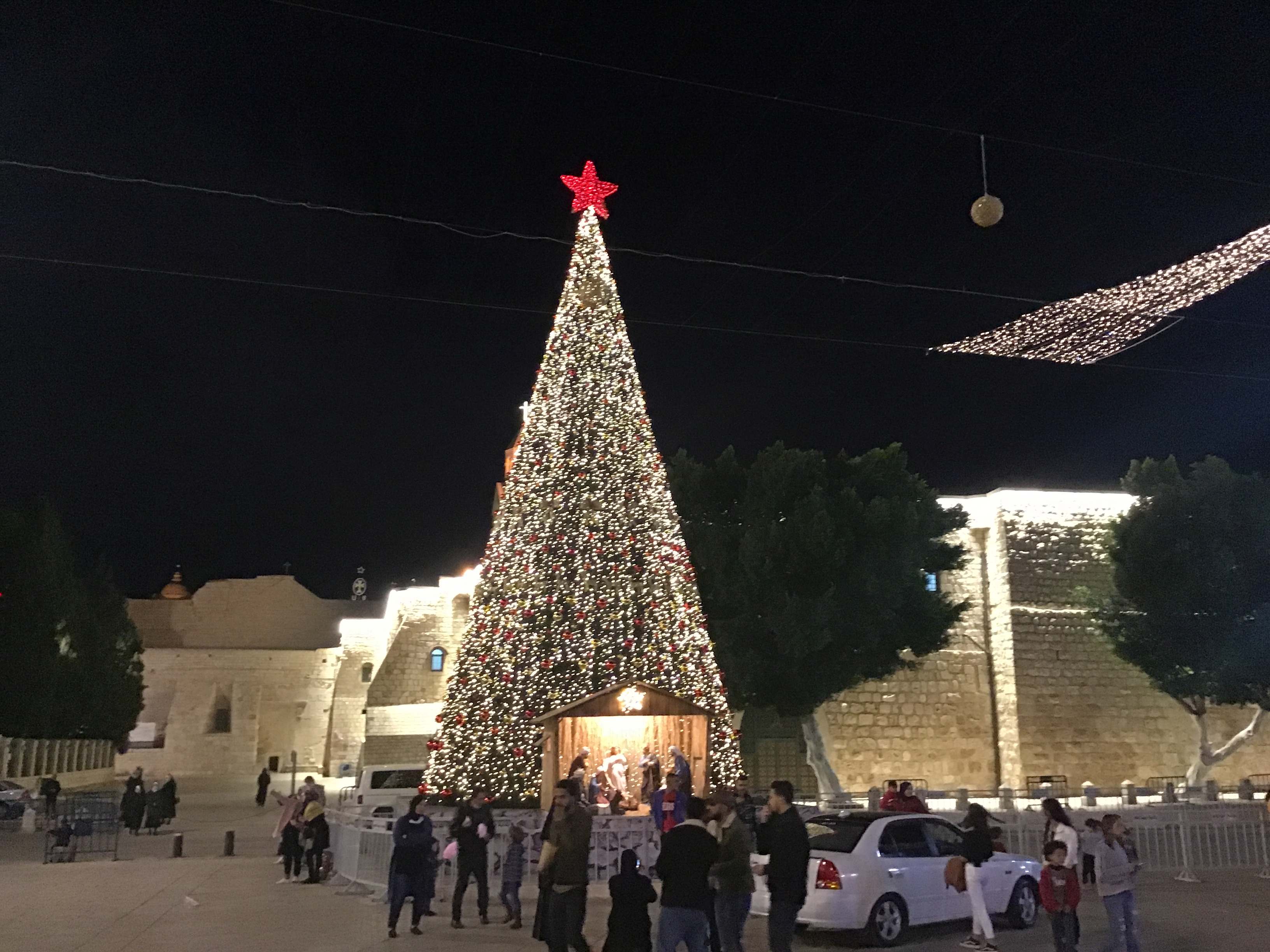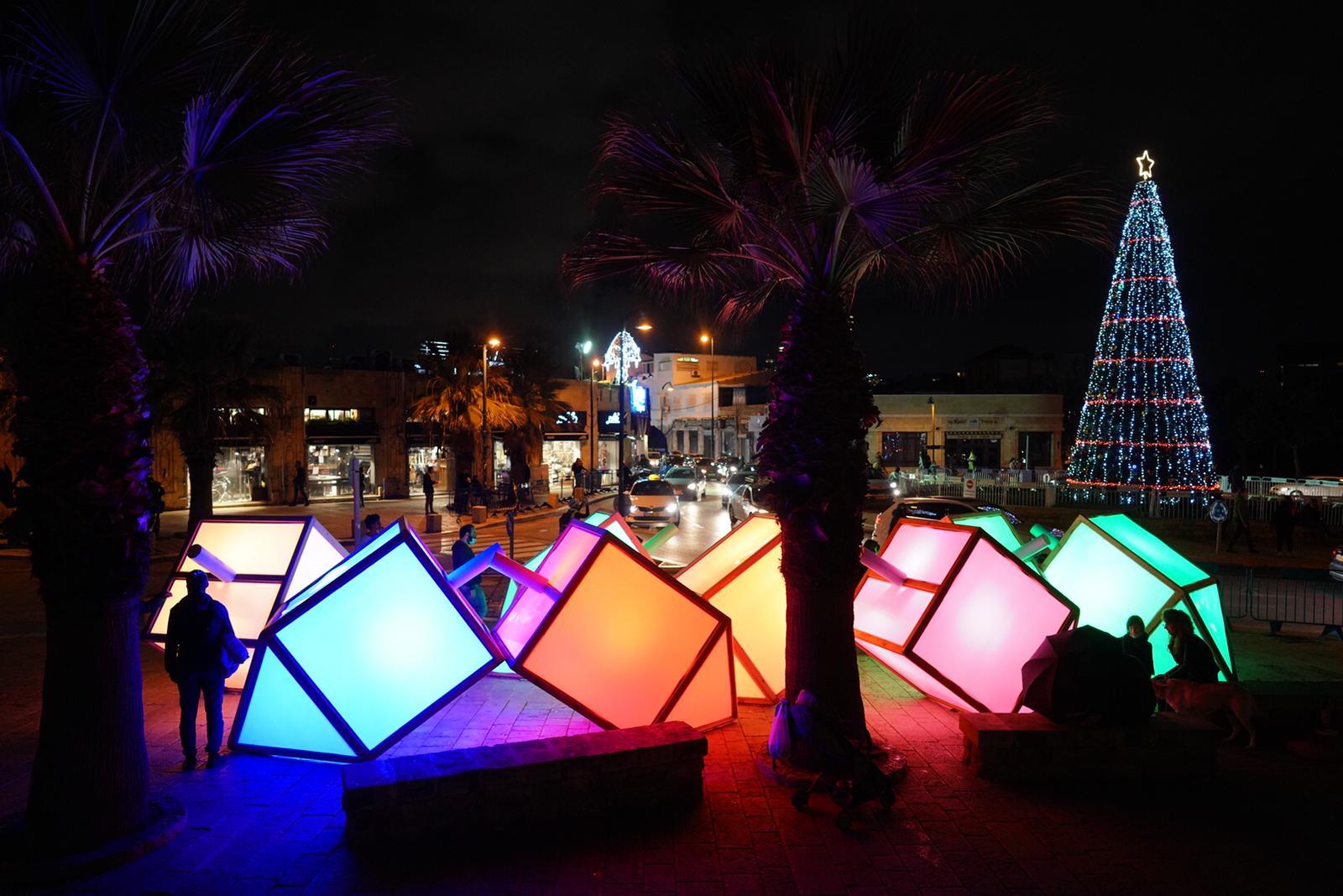For Christians in Israel, West Bank and Gaza, Christmas COVID restrictions 'complicated' and painful
Some, however, determined to find a way to share light this holiday season

The atmosphere in Israel this holiday season is brimming with disappointment and hopelessness, as opposed to the usual festiveness leading up to the Christmas holidays celebrated both on Dec. 25 by Catholics and Evangelicals and on Jan. 7 by Orthodox Christians.
“The spirit of Christmas is absent. We are trying at church to share and bring smiles to the faces of the children,” Saleem Shalash, pastor of Home of Jesus the King Church in Nazareth, told ALL ISRAEL NEWS.
But Shalash, who is an Evangelical Christian with a church of 100 in the northern city, is never one to sit back and do nothing. He simply adjusted his usual holiday outreaches to Ministry of Health COVID-19 restraints and made a new plan.
The first thing he did was to blast a message on a rotating televised billboard announcing 350 times a day to the majority Muslim city: “Jesus is the reason for the season” in English, Arabic and Hebrew.

Later this month, he will lead a small team of volunteers from the church to deliver food packages to 150 Jewish, Muslim and Christian families in need, including 50 Holocaust survivors. The group plans to sings carols from their van as they drive to these houses and deliver the packages a few days prior to Christmas.
Normally, the church would open its humanitarian center to distribute goods and share a cup of coffee with those who stop by. But nothing is normal during the pandemic.
Israelis are lighting Hanukkah candles under the lingering restrictions from the second lockdown, which began in September, and are being urged not to congregate for candle lighting ceremonies.
The coronavirus cabinet has decided that if Israel reaches 2,500 new cases a day, the country will go to tightened restraint for three weeks. If those numbers do not decline after three weeks, another — third — general lockdown will be imposed. New infections are currently hovering between 1,000 to just under 2,000 a day.
It is already scaled back, but Christmas — even with family — is in danger of being canceled this year if a curfew is put into place.
And that would deal a strong blow to the indigenous Christian community, a dwindling minority that holds fiercely to its traditions amid both Jewish and Muslim populations.
“These celebrations are part of our identity, history and also make community,” Latin Patriarch of Jerusalem Pierbattista Pizzaballa said during a meeting with Israeli President Reuven Rivlin.
He recalled the first lockdown in the spring, in which curfews were imposed during Passover and Easter, houses of worship were closed.
“For our community this is still a wound — an open wound because we couldn’t celebrate properly,” he said. “And because of that it is even more important for us to celebrate Christmas as much as possible because, (with) almost no Easter, no Christmas would be very complicated for the community.”
Already the festival in Nazareth has been canceled and the annual Christmas fair at the YMCA in Jerusalem will not take place this year. It isn’t much better in the West Bank and Gaza. Bethlehem is under lockdown and audience attendance at the annual tree lighting ceremony was forbidden.

President Rivlin, in his meeting with key Christian leaders in Jerusalem, said that freedom of religion and worship are “key values in the State of Israel.” But Christians of the Holy Land must comply with coronavirus restrictions during the holiday season, he said.
“The safety of the Christian communities and the holy places in Israel and the Palestinian Authority, particularly in Bethlehem, are very important to us.”
Israel is trying to create as much atmosphere as it can for Hanukkah and Christmas. Eytan Halon, head of international press for the Tel Aviv-Yafo Municipality, said all events are outside or online and the municipality is trying to make these annual events as “normal” as possible and in addition, helping out local businesses and artists.
“Events which would traditionally draw crowds are not happening,” he told ALL ISRAEL NEWS. “But within public spaces, such as the Christmas tree and Hanukkah, we can still be there.”

For instance, the Jaffa tree lighting took place since it is outdoors, but without scouts from the church and a march.
“We want to keep people safe, and infection rates down across the city,” he said. “As we always do, we always find a way to be creative and adapt to the new reality.”
In the next few weeks, the municipality is providing walking tours (which comply with coronavirus restrictions) focusing on Hanukkah and Christmas with live and online concerts, a motorized Santa Claus procession, distribution of home decoration kits, candle lighting for neighbors and a range of cultural and communal activities.
Despite Nazareth being under tighter restrictions this year, Shalash is staying upbeat and will do what he can to bring encouragement and holiday cheer.
“It is very special for us: This is the first year we are doing humanitarian aid and even in the COVID crisis, we do believe the Lord will do something,” he said.

Nicole Jansezian was the news editor and senior correspondent for ALL ISRAEL NEWS.













